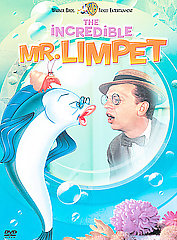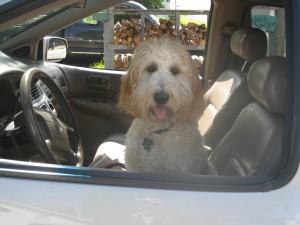Tag Archive for Writing advice Preller
Writing Process: Research to Feed Your Head
“Talent must be stimulated by facts and ideas.”
— Robert McKee, Story
For the most part, I don’t talk about writing in global terms. It’s an individual process, and it’s not like I think I’m a master. I mean, sure, I’ve been writing professionally since 1986, so I’ve learned some things along the way. As time goes on, even I have to admit that I probably know something. Even so, I try to limit that to sharing my own experiences, things that have worked for me, rather than pretending to know what works for everyone. I’m more student than teacher. Nonetheless, one guideline of this blog since inception has been to be open about my work as a writer, no matter how squirmy that might make me feel.
I mean to say: A huge, huge part of me lands in the A.J. Liebling camp, who wrote: “The only way to write is well and how you do it is your own damn business.”
That’s why I don’t type status updates about my work on, say, Facebook, or begin party conversation by expounding upon my work routine. My brother, Al, sells insurance and I sure don’t want to read on Facebook about how he does it behind the scenes — just make sure I’m covered when we bend a fender, bro. However, I submit that a writer’s blog is different: You came here, I didn’t hound you down, so it’s your own damn fault if I sometimes prattle on about me, me, me. There’s an assumed interest that, again I contend, just isn’t there in most of social situations.
Back to the topic at hand, research: It’s like that last line in the Jefferson Airplane song about Alice In Wonderland, “White Rabbit,” I agree with the dormouse: It’s vital to feed your head. Ideas don’t usually appear in a vacuum. My most enthusiastic writing is fueled by new knowledge, new information. My focus is largely on building character, revealing character through events. If I only write about what I know — a rant I’ll save for a later date — then all my characters will ultimately be limited by the contents of one (not necessarily fascinating) character, me.
Fortunately, it’s never been easier to learn new things — and it’s also fun.
Two examples:
1) I’m writing something now and it struck me that a minor character might be really into tropical fish. He’s got a fish tank, reads books about fish, is just deeply into it. I have a personal connection to that, since when I was growing up my father had a fish tank and, for a while, my brother and I picked up the hobby (Billy even bred Siamese Fighting Fish — craziness, believe me!). But this was long ago. Let’s see . . . what else? As a kid, I loved the movie, The Incredible Mr. Limpet with Don Knotts. More recently, I’ve renewed contact with an old college friend who is . . . really, really into tropical fish. So he got me thinking about it again.
The reality is that I don’t know much about fish, but I want to create a character who does. So I’ll do research, see what comes up, try to write some scenes, go visit a fish store, and who knows. It might work for me, stimulate my imagination with facts and ideas, or not.
2) In Along Came Spider, I very much wanted to show that Trey, a positive, wonderful boy with autism, had his own unique talents and interests. For one, he loved animals and had a special affection for birds. He built his own bird houses and hung them in his back yard — and, in the book, one such house becomes a meaningful gift for the school librarian, Mrs. Lobel. However, I had a problem: I personally can’t build a piece of toast, much less a bird house. Time for some internet research to stimulate my brain with facts and ideas.
Here’s part of the scene that resulted, excerpted from Chapter 13, “Ava Bright.” In a meeting arranged by Trey’s oldest friend, Spider, Ava Bright visits Trey in his backyard:
They found green-haired Trey sprawled on his back patio. He was on his knees, hunched over scraps of wood and various tools — measuring tape, saw, hammer, drill, chisel, screwdrivers.
Ava’s eyes widened as she took in the entire backyard, the stand of breathtaking oaks, maples, and pines, the field of wild grass beyond. She arched her back and gazed up at the great old trees. “This is really, really nice,” she murmured.
Trey scrambled to his feet. “Oh, hi. I didn’t hear you guys.”
“What are you building?” Ava asked.
“A gift,” Trey answered. “It’s a nest box.”
“A nest box?”
“Most people call them birdhouses,” Trey said, “but most people are wrong.”
Spider grinned. He had heard Trey recite facts about birds and nest boxes many times. It was amazing and, at the same time, So Totally Out There. Trey could sit for hours in perfect silence, but when he got going on one of his favorite topics — like birds or rocks or ice cream — he would talk nonstop. And it didn’t matter if you paid attention or not. It was as if Trey had so many facts crammed into his head, he couldn’t keep them locked inside. Spider imagined a volcano spewing hot lava: Mount Trey.
“Can I help?” Ava asked. “I mean, I don’t know anything about nest boxes, but I’m pretty good with a hammer.”
Trey nodded, sure she could help. He looked at Spider with a question in his eyes.
“Sounds good to me,” Spider said.
Trey showed them what to do. And while he did, he explained things to Ava, who was either astonishingly polite or very interested — or both. “About one hundred different species of birds nest in natural cavities,” Trey said. “You know, like holes in trees, the eaves of houses, things like that.”
Ava nodded, listening as she made measurements on a length of pine board.
“But lots of trees are cut down every year,” Trey said. “That’s bad for birds. Their natural habitat is shrinking. Plus, other animals — like squirrels, which I do not like — he said with surprising hostility — “all compete for the nesting places. Lots of songbirds like nest boxes. Bluebirds, titmice, chickadees, wrens –“
“It’s nice that you build them,” Ava said. “I’m sure the birds appreciate it.”
“Well, we have to take care of them, don’t we?” Trey said matter-of-factly. “I mean, they can’t build these by themselves. And it’s so easy for us.”
Even though Spider had heard Trey say things like that many times before, this time the words struck him in a different way. We have to take care of them, don’t we? It was a simple thing to say. A clear, true thought. We have to take care of them, Spider repeated to himself. It’s so easy for us.
The clouds parted and a warm yellow sun shone down. Ava, Trey, and Spider worked together for the next couple of hours, laughing and talking. Ava asked a lot of questions — she had a curious, interested sort of mind — and Trey had all the answers. He explained how the nest box roof needed at least three inches of overhang to protect the birds from hard rain. He showed Ava how to spread a coat of petroleum jelly along the inside of the roof to keep away wasps and bees. And with a chisel, Trey patiently grooved the interior walls of the house. “It helps the baby birds climb to the opening,” he explained.
Ava was impressed. She looked around, suddenly puzzled. “But I only count two nest boxes in your yard,” she said. “I thought you built lots of them?”
“I give them away,” Trey answered. “Birds are territorial. They don’t like it if you put the boxes too close together. They don’t like crowds, and I totally agree with them,” he said. Trey finished screwing the last galvanized screw into the nest box. “There,” he said proudly, holding up the final creation.
“You’re very talented, Trey,” Ava said with admiration. “And smart. Isn’t he, Spider?”
“He’s one of a kind,” Spider replied, grinning.
<< snip >>
The scene continues at a leisurely pace, the three kids hanging out together, building a friendship over hammers and wood. Nothing amazing ever happens in this book, frankly, a minor crisis or three, but my point in sharing this scene is to show how it grew organically out of my research for this character. He was interested in something I didn’t know anything about. As a writer, I felt in no way limited to write about only what I knew — what I knew was that I needed to feed my imagination with facts and ideas! I wanted to learn and grow as a person, as a writer. Once I got to a point where I knew something (new), I was able to write, k/newly inspired.
That scene, and some core metaphors for the book, grew out of that research.
When logic and proportion
Have fallen sloppy dead
And the White Knight is talking backwards
And the Red Queen’s “off with her head!”
Remember what the dormouse said:
“Feed your head
Feed your head
Feed your head”
Category: Along Came Spider, the writing process / Tags: "Talent must be stimulated by facts and ideas", autism in children's books, autism in children's literature, James Preller on writing, james preller writing process, Jefferson Airplane White Rabbit & Alice in Wonderla, Robert McKee Story, song about alice in wonderland, Writing advice Preller
Fan Mail Wednesday #81 (Thursday Edition)
Woo-hoo, it’s Fan Mail Wednesday! Wait, no. Today is Thursday. It can’t be Fan Mail Wednesday. Can it? That’s impossible. No recurring feature on an author’s blog could possibly be so powerful that it transcends the laws of time and space!
But oh, yes, faithful readers. Witness the power and majesty of Fan Mail Wednesday. It doesn’t care what day it is . . .
Dear Mr. Preller,
My name is Gizela. I like your Jigsaw Jones Mystery books. They are so awesome. I always want to solve the mystery before I read it. But it is so hard for me. Most of the mysteries are so interesting.
I just like it when the mystery is solved. Why do you write these books? What made you write these books? When did you first write your own book?
Why did you make these characters? Where did you get all these ideas? Why did you put a dog in these books? Why did you name the books Jigsaw Jones?
I like your Jigsaw Jones Mystery books because it has a problem and they solve it. I like the dog too. I like your books because they have funny mysteries. I hope to hear from you!
Sincerely,
Gizela
I replied:
Gizela,
Boy, I love your name. It’s a name I want to sing, not say. So much more melodious than, oh, Frank or Bert or even Prunella. Gizela, Gizela . . . GIZELA!
I love books. I love reading. Now maybe as a young kid, that wasn’t so much the case. I read, but I don’t remember totally loving it. I loved physical things like baseball and wrestling and eating cinnamon Pop-Tarts. But I was lucky. I had four older brothers, two older sisters, and most of them read books. It seems like such a minor detail, but I think it’s important: I SAW them reading! It looked like a reasonable activity, something a boy might do and enjoy. In fact, my brothers often pressed books into my hands, telling me I’d love them.
But the next question is . . . how did I cross over from reader to writer? It seems like a wild leap across a great distance. I guess it felt natural. I liked to draw. I filled notebooks with dice games and baseball statistics. That is: I happily spent time alone with a pencil or crayon in my hand. Writing became a natural extension of that physical activity. There’s only so much you can do when you’re alone with a piece of paper and a pencil.
How can I explain this? I love music. It’s a big part of my day, every day. Yet I can’t play an instrument. I never had a lesson. I’m in awe of people who can do it. Growing up, I came to understand — wrongly, of course — that OTHER, MORE TALENTED PEOPLE did that stuff. That was the message I got: Leave the music to the professionals. Step away from the tuba. But for some reason, when it came to books, I thought to myself, I can do that.
That’s an important sentence right there, Gizela, so let’s say it again:
I
CAN
DO
THAT!
And because I believed it, so it was true. If I could wish anything for you — or for my children, or my friends — it’s that they can feel the same way about things they care about. I want you to look at a beautiful painting, or the achievements of an athlete, a dancer, a doctor, whatever, and say to yourself, “I can do that.”
Because I really believe you can.
JP
P.S. Oh, yes, the dog. As a kid, I never had one. No dog. I lived for years in a sorry state of doglessness. As an adult, dogs came into my life and I’ve (mostly) enjoyed sharing my house with them. When I make up stories, I sometimes give characters little gifts. Jigsaw has an awesome tree house — another thing I never had as a kid. How I wanted one! Because I like Jigsaw, I gave him the tree house I never had. I also gave him . . . a dog. It felt right.
This is our family dog, Daisy. She drives!
Category: Fan Mail, the writing process / Tags: Fan Mail Wednesday, Jigsaw Jones, Preller Fan Mail, Writing advice Preller, Writing tips Preller








